
Recoleta: The Heartbeat of Buenos Aires' Elegance
Recoleta is one of Buenos Aires' most sophisticated and charming neighborhoods, known for its rich history, European architecture, and cultural landmarks. As you stroll through its tree-lined streets, you’ll find yourself surrounded by stunning French-style buildings, upscale boutiques, and cozy cafes that exude an old-world charm. The neighborhood's elegance is complemented by its vibrant atmosphere, making it a must-visit destination for any traveler. One of the most iconic landmarks in Recoleta is the Recoleta Cemetery, a labyrinth of ornate mausoleums and statues where many of Argentina's most famous figures are laid to rest, including Eva Perón. The cemetery is not just a burial ground but an open-air museum that offers a unique glimpse into the country's history and culture. Nearby, you'll find the Basilica of Our Lady of the Pillar, a beautiful 18th-century church that adds to the area's historical significance. For art enthusiasts, the Museo Nacional de Bellas Artes houses an impressive collection of Argentine and European art, ranging from the Middle Ages to contemporary works. The neighborhood also boasts several parks and plazas, such as Plaza Francia, where you can enjoy weekend craft fairs, live performances, and a variety of food stalls. Recoleta's blend of culture, history, and modern amenities makes it a captivating destination for tourists.
Local tips in Recoleta
- Visit Recoleta Cemetery early in the morning to avoid crowds and get the best photos.
- Take a guided tour of the cemetery to learn about the historical figures buried there.
- Don't miss the weekend market at Plaza Francia for unique souvenirs and local crafts.
- Wear comfortable shoes as the neighborhood is best explored on foot.
- Stop by one of the many cafes for a traditional Argentine coffee and pastry.
Recoleta: The Heartbeat of Buenos Aires' Elegance
Recoleta is one of Buenos Aires' most sophisticated and charming neighborhoods, known for its rich history, European architecture, and cultural landmarks. As you stroll through its tree-lined streets, you’ll find yourself surrounded by stunning French-style buildings, upscale boutiques, and cozy cafes that exude an old-world charm. The neighborhood's elegance is complemented by its vibrant atmosphere, making it a must-visit destination for any traveler. One of the most iconic landmarks in Recoleta is the Recoleta Cemetery, a labyrinth of ornate mausoleums and statues where many of Argentina's most famous figures are laid to rest, including Eva Perón. The cemetery is not just a burial ground but an open-air museum that offers a unique glimpse into the country's history and culture. Nearby, you'll find the Basilica of Our Lady of the Pillar, a beautiful 18th-century church that adds to the area's historical significance. For art enthusiasts, the Museo Nacional de Bellas Artes houses an impressive collection of Argentine and European art, ranging from the Middle Ages to contemporary works. The neighborhood also boasts several parks and plazas, such as Plaza Francia, where you can enjoy weekend craft fairs, live performances, and a variety of food stalls. Recoleta's blend of culture, history, and modern amenities makes it a captivating destination for tourists.
Iconic landmarks you can’t miss
Centro Cultural Recoleta
Discover the vibrant cultural scene at Centro Cultural Recoleta, a landmark of art, history, and community in Buenos Aires.
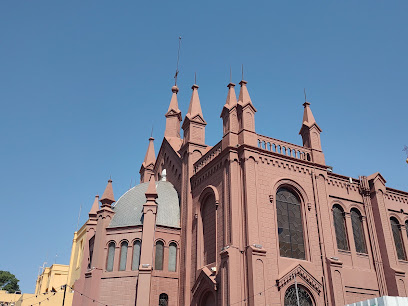
Plaza Francia
Explore the beauty and cultural richness of Plaza Francia, a must-visit park in Buenos Aires, offering art, nature, and local charm in a picturesque setting.
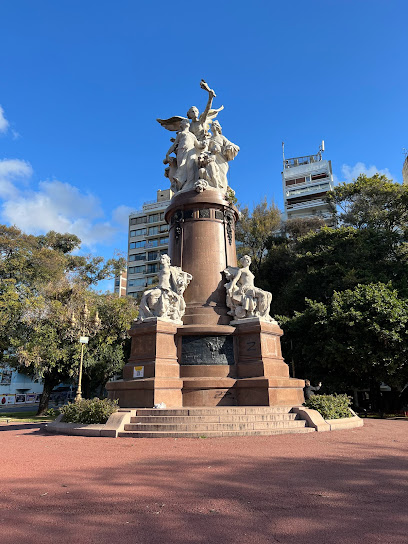
Plaza Rodríguez Peña
Discover the beauty of Plaza Rodríguez Peña, a serene city park in Buenos Aires that blends nature, culture, and relaxation in one charming location.
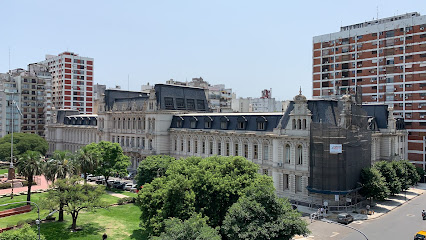
Cementerio de la Recoleta
Explore the exquisite Cementerio de la Recoleta, a stunning necropolis filled with artistic masterpieces and rich history in the heart of Buenos Aires.
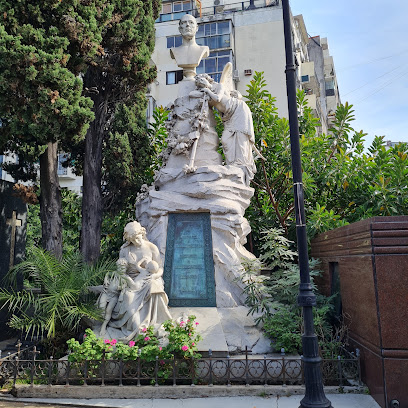
Plaza San Martín de Tours
Explore the tranquil beauty of Plaza San Martín de Tours, a cultural gem in Buenos Aires, surrounded by stunning architecture and lush landscapes.
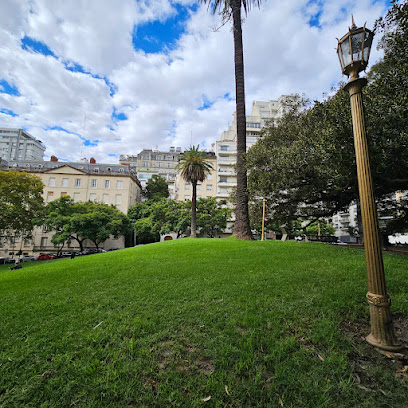
Square Ramón J. Cárcano
Explore the serene beauty of Square Ramón J. Cárcano, a peaceful park in the heart of Buenos Aires, perfect for relaxation and cultural experiences.
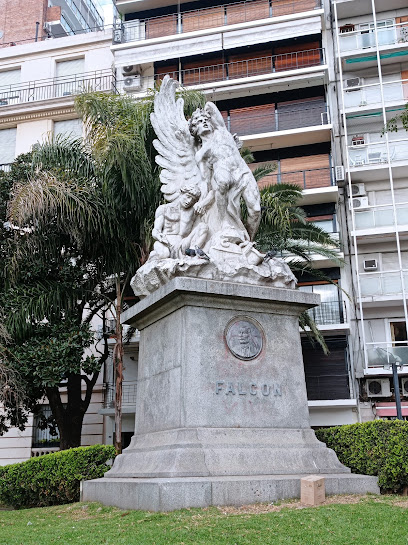
Monument to Bartolomé Mitre
Discover the Monument to Bartolomé Mitre in Buenos Aires - a captivating sculpture that embodies Argentina's rich history and cultural heritage.
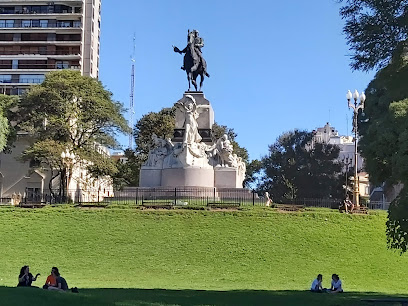
Veredón Paseo de la Recoleta
Discover the elegant Veredón Paseo de la Recoleta, a beautiful escape in Buenos Aires filled with culture, history, and stunning architecture.
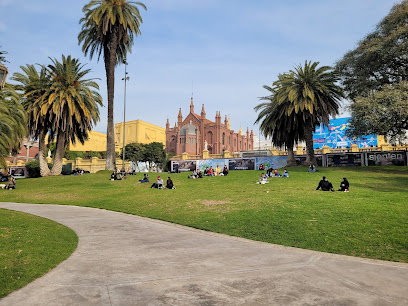
Monument to Guillermo Rawson
Explore the Monument to Guillermo Rawson, a historical landmark in Buenos Aires celebrating Argentina's rich heritage and architectural beauty.
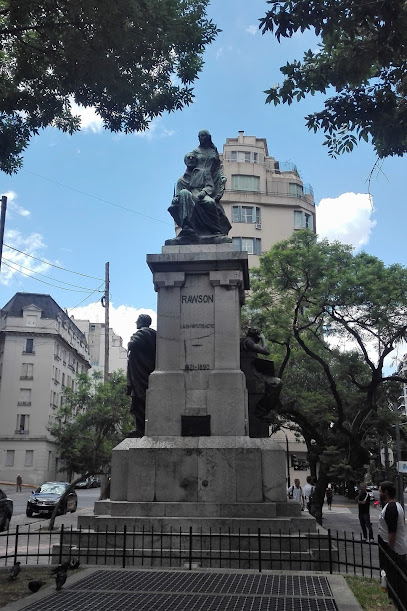
Monument to the Republic of Lebanon
Explore the Monument to the Republic of Lebanon in Buenos Aires, a stunning historical landmark that celebrates cultural heritage with breathtaking architecture.
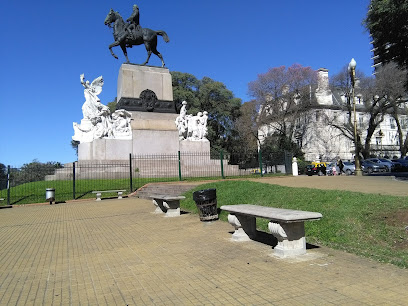
Unmissable attractions to see
Museo Nacional de Bellas Artes
Explore Argentine and European masterpieces at Buenos Aires' National Museum of Fine Arts. Free admission, diverse collections, and rich history await.
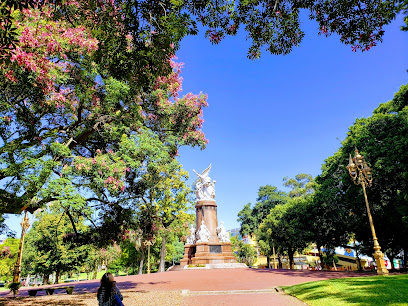
Plaza Francia
Experience the charm of Paris in Buenos Aires at Plaza Francia, a historic square with monuments, markets, and cultural attractions.
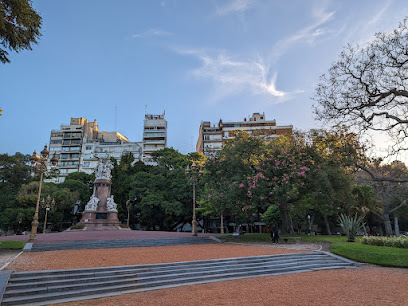
Plaza Rodríguez Peña
Escape the city buzz in this Recoleta green space, a tranquil park with historical monuments, lush greenery, and a relaxing atmosphere.
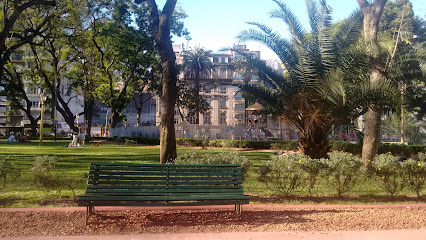
Parque Thays
Experience the beauty of nature in the heart of Buenos Aires at Parque Thays, a serene urban park filled with stunning landscapes and captivating sculptures.
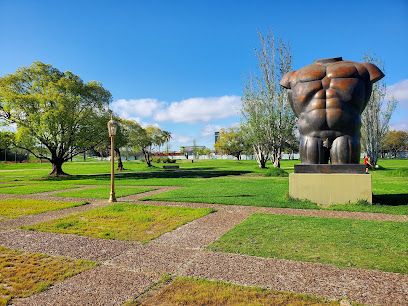
Participatory Science Museum
Explore science through hands-on exhibits at Buenos Aires' Participatory Science Museum. A fun, interactive experience for all ages!
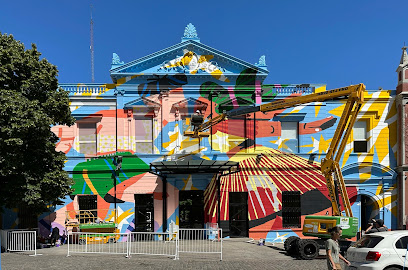
Plaza San Martín de Tours
Discover a serene Parisian-style oasis in the heart of Buenos Aires' Recoleta neighborhood at Plaza San Martín de Tours.
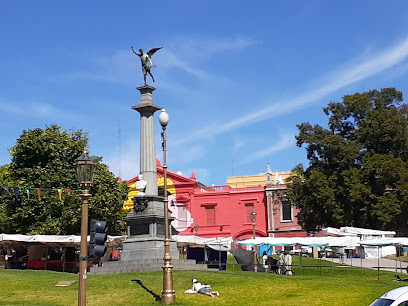
Plaza Rubén Darío
A tranquil Recoleta park honoring poet Rubén Darío, featuring sculptures, a pond, and access to the Fine Arts Museum.
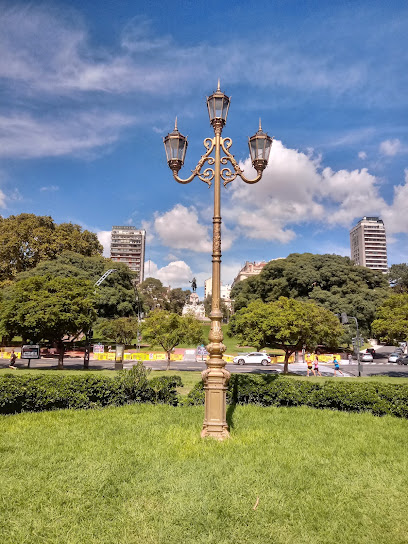
Veredón Paseo de la Recoleta
Discover Veredón Paseo de la Recoleta, a serene promenade in Buenos Aires' Recoleta, offering culture, history, and stunning architecture.
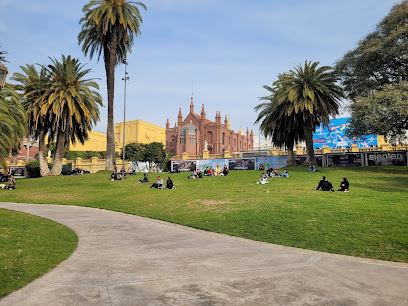
Monumento a los Perros
A touching tribute to the loyalty and love of dogs in the heart of Buenos Aires' Recoleta neighborhood.
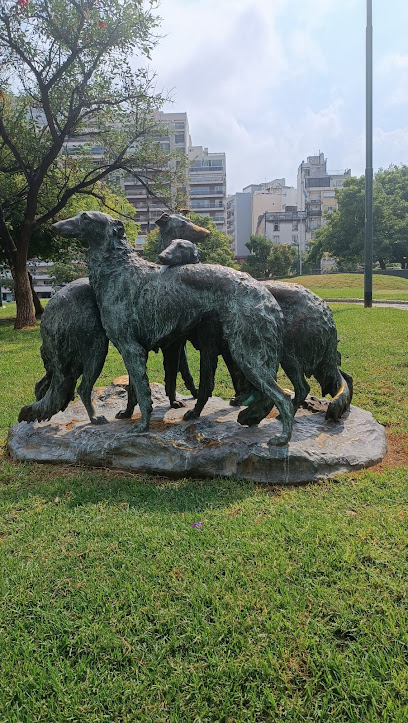
Panteón de Dellepiane
Discover the serene beauty of Panteón de Dellepiane in Buenos Aires, a historical memorial reflecting Argentina's rich cultural heritage.
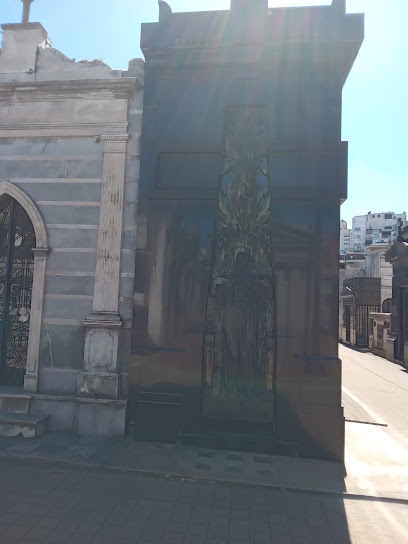
Essential places to dine
Quotidiano Bar de Pastas Recoleta
Discover authentic Italian flavors at Quotidiano Bar de Pastas in Recoleta, Buenos Aires - where every dish tells a story.
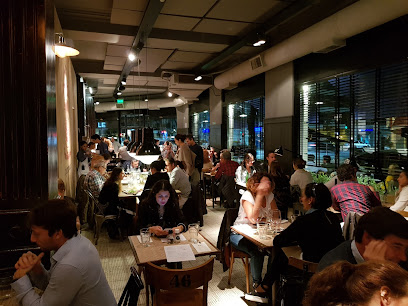
Rodi Bar
Experience authentic Argentine cuisine at Rodi Bar in Buenos Aires - where every meal tells a delicious story.
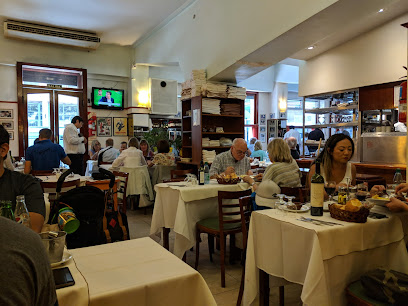
ROUX
Discover ROUX: A premier fine dining experience in Buenos Aires with exquisite dishes and exceptional service.
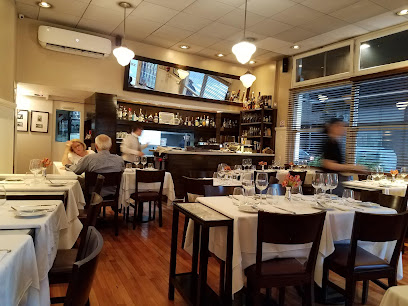
La Querencia
Experience authentic Argentinian cuisine at La Querencia - where tradition meets flavor in the heart of Buenos Aires.
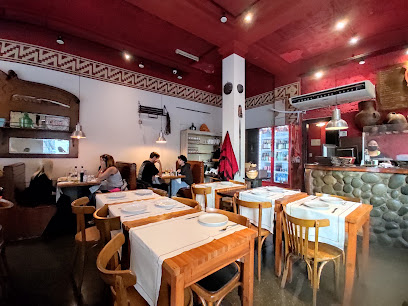
Oviedo Restaurante
Experience the pinnacle of Spanish-Mediterranean cuisine at Oviedo Restaurante in Buenos Aires, where elegance meets exceptional flavors.
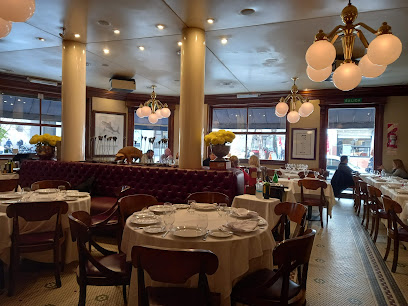
Rigoletto Restaurant
Experience authentic Italian cuisine at Rigoletto Restaurant in Buenos Aires - where flavor meets tradition in every dish.
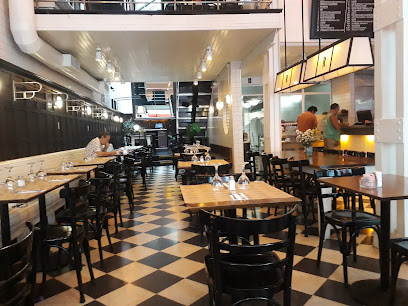
Jardín de Invierno
Discover Jardín de Invierno: A premier dining destination in Buenos Aires offering exquisite cuisine and an elegant atmosphere.
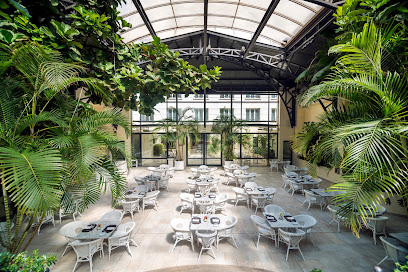
Restaurante Marcelo Cocina Italiana Intersur
Experience authentic Italian flavors at Restaurante Marcelo Cocina Italiana in Recoleta, Buenos Aires - where tradition meets elegance.
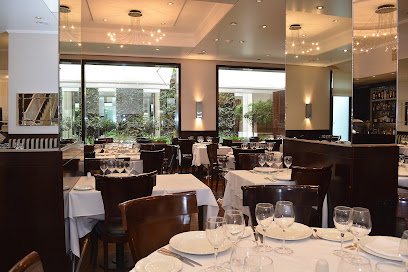
Síntesis Tapas Asiáticas
Experience the fusion of Japanese and Asian flavors at Síntesis Tapas Asiáticas in Buenos Aires – a must-visit for food lovers!
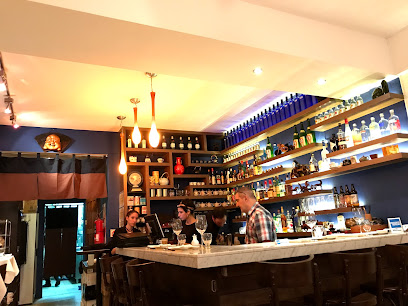
Duhau Restaurante & Vinoteca
Experience refined Argentine cuisine and an extensive wine selection at Duhau Restaurante & Vinoteca in Buenos Aires.
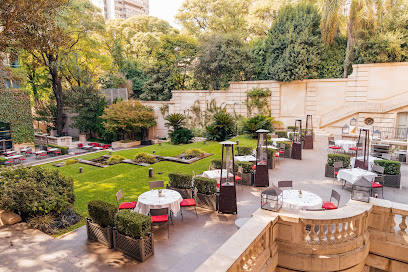
Markets, malls and hidden boutiques
Recoleta Urban Mall
Explore the vibrant Recoleta Urban Mall in Buenos Aires, where shopping meets culture in a lively urban setting.
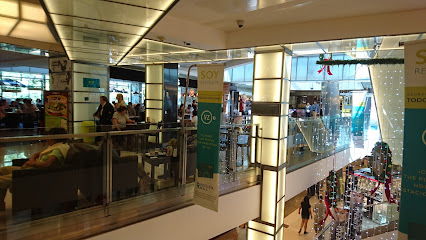
Casa Recoleta
Explore Casa Recoleta, Buenos Aires' premier shopping mall, blending culture, cuisine, and commerce in a vibrant atmosphere.
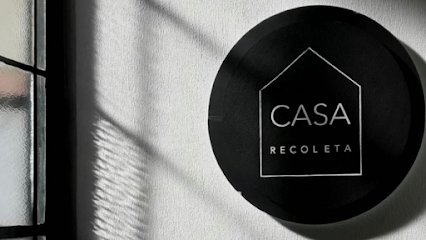
Regalos Deep Forest
Discover authentic Irish goods in Buenos Aires at Regalos Deep Forest, a charming gift shop offering unique souvenirs and handcrafted treasures.

Bazar Orange Store
Explore the charm of Buenos Aires with unique gifts and home goods at Bazar Orange Store, a treasure trove of local craftsmanship.
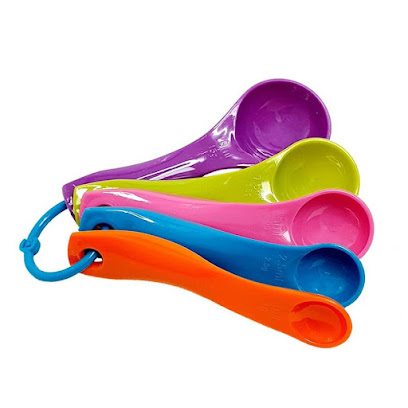
MAX STUDIO VINTAGE STORE
Explore unique vintage women's fashion at Max Studio Vintage Store in Buenos Aires, where every piece has a story to tell.

Pandora's Box
Explore Pandora's Box, a delightful gift shop in Recoleta, Buenos Aires, featuring unique souvenirs and local artisan crafts that embody Argentine culture.
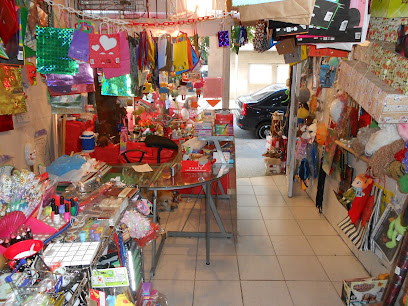
LERIA accesorios
Explore LERIA Accesorios, a charming gift shop in Buenos Aires, offering unique handcrafted accessories that capture the essence of Argentine artistry.
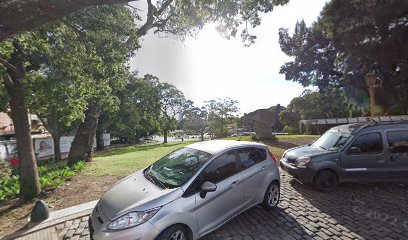
Kosimanias
Explore unique Argentine gifts at Kosimanias in Buenos Aires, where local craftsmanship meets vibrant culture.
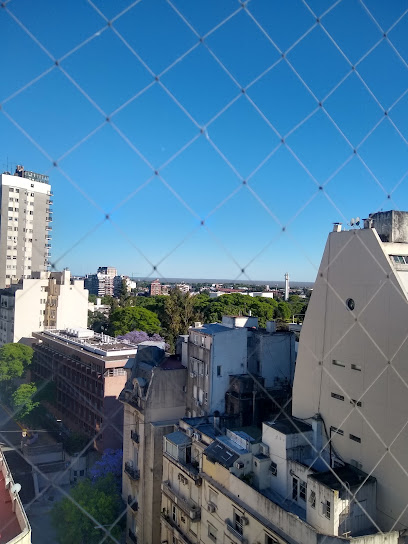
La Boutique
Discover the essence of Argentine fashion at La Boutique, a stylish women's clothing store in the heart of Buenos Aires' Recoleta neighborhood.
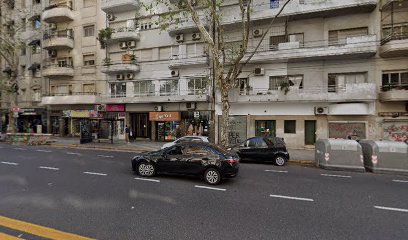
Buenos Aires Shopping
Experience the vibrant shopping scene of Buenos Aires, where luxury meets local craftsmanship in an unforgettable fashion adventure.
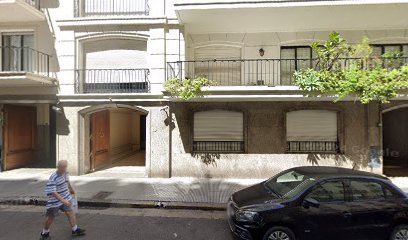
Essential bars & hidden hideouts
Temple Craft Recoleta
Discover the best of Argentine craft beers and delicious cuisine at Temple Craft Recoleta, a must-visit brewpub in Buenos Aires.
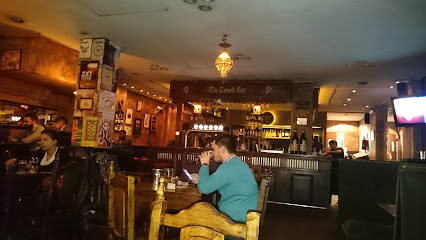
Temple Recoleta Junin
Discover Temple Recoleta Junin, a vibrant brewpub in Buenos Aires offering artisanal beers, delicious bites, and a welcoming atmosphere for all.
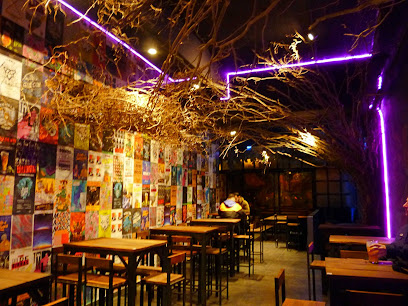
The Shamrock Bar & Basement Club
Experience the lively atmosphere of The Shamrock Bar & Basement Club, where Irish charm meets Buenos Aires nightlife and delicious gastropub cuisine.
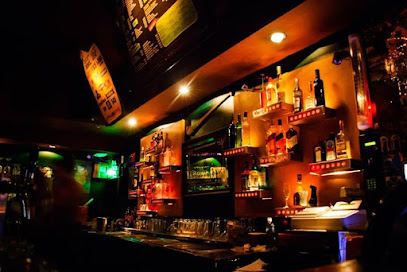
On Tap Recoleta
Discover the dynamic brewpub scene in Buenos Aires at On Tap Recoleta, where local craft beers and a lively atmosphere await you.
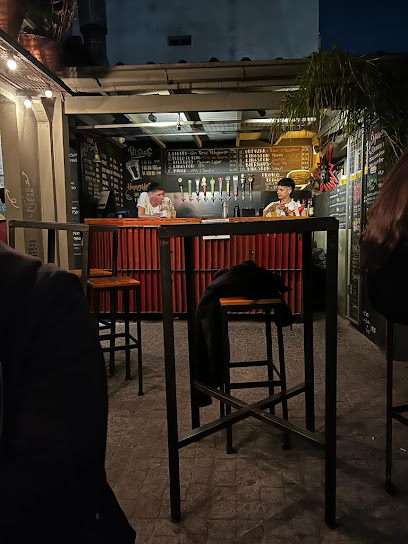
Alvear Roof Bar
Discover the elegance of Alvear Roof Bar, where stunning city views and luxurious cocktails create an unforgettable Buenos Aires experience.
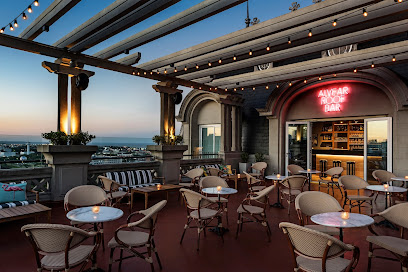
NÓMADE BAR
Discover NÓMADE BAR in Buenos Aires: a must-visit brewpub for craft beer lovers and gourmet burger enthusiasts.
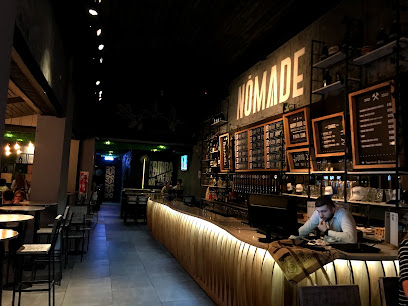
Quintana 420
Discover Quintana 420, a top-rated bar and grill in Buenos Aires, offering authentic Argentine flavors in a vibrant setting.
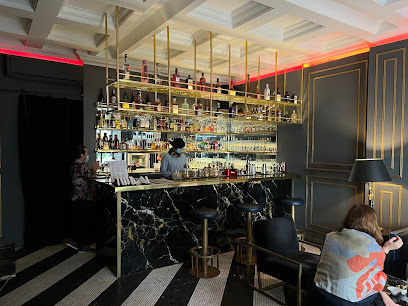
Amazonica Bar
Experience the lively fusion of a bar and gastropub in Buenos Aires at Amazonica Bar, where great drinks and diverse cuisine await.
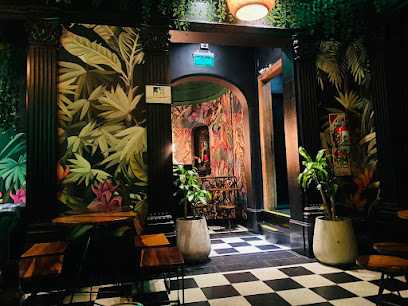
Moon Bar
Explore Buenos Aires' nightlife at Moon Bar, a stylish bar in Recoleta offering creative cocktails and vibrant atmosphere from late night until dawn.
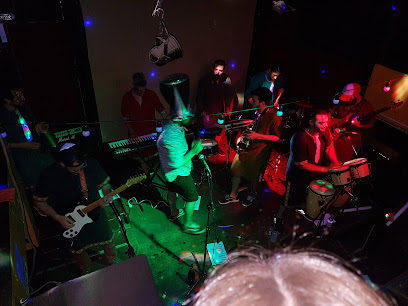
Social Wine Bar
Experience the essence of Argentine wine culture at Social Wine Bar in Recoleta, Buenos Aires, where every sip tells a story.
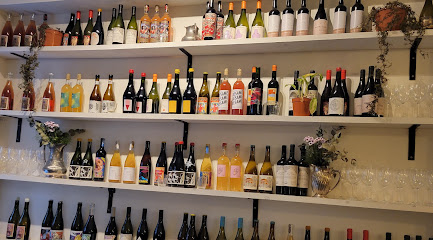
Local Phrases
-
- HelloHola
[oh-lah] - GoodbyeChau
[chow] - YesSí
[see] - NoNo
[noh] - Please/You're welcomePor favor/De nada
[por fah-bor/de nah-dah] - Thank youGracias
[grah-see-as] - Excuse me/SorryPerdón
[pair-dohn] - How are you?¿Cómo estás?
[koh-moh ehs-tahs] - Fine. And you?Bien. ¿Y tú?
[byen. ee too] - Do you speak English?¿Hablas inglés?
[ah-blahs een-gles] - I don't understandNo entiendo
[noh ehn-tyen-doh]
- HelloHola
-
- I'd like to see the menu, pleaseMe gustaría ver el menú, por favor
[meh goo-stah-ree-ah vehr ehl meh-noo, por fah-bor] - I don't eat meatNo como carne
[noh koh-moh kahr-neh] - Cheers!Salud!
[sah-loohd] - I would like to pay, pleaseMe gustaría pagar, por favor
[meh goo-stah-ree-ah pah-gar, por fah-bor]
- I'd like to see the menu, pleaseMe gustaría ver el menú, por favor
-
- Help!¡Ayuda!
[ah-yoo-dah] - Go away!¡Vete!
[veh-teh] - Call the Police!¡Llama a la Policía!
[yah-mah ah lah poh-lee-see-ah] - Call a doctor!¡Llama a un médico!
[yah-mah ah oon meh-dee-koh] - I'm lostEstoy perdido
[ehs-toy pair-dee-doh] - I'm illEstoy enfermo
[ehs-toy ehn-fehr-moh]
- Help!¡Ayuda!
-
- I'd like to buy...Me gustaría comprar...
[meh goo-stah-ree-ah kohm-prahr...] - I'm just lookingSolo estoy mirando
[soh-loh ehs-toy mee-rahn-doh] - How much is it?¿Cuánto cuesta?
[kwan-toh kwehs-tah] - That's too expensiveEso es demasiado caro
[eh-soh ehs deh-mah-see-ah-doh kahr-oh] - Can you lower the price?¿Puede bajar el precio?
[pweh-deh bah-har ehl pree-syoh]
- I'd like to buy...Me gustaría comprar...
-
- What time is it?¿Qué hora es?
[keh oh-rah ehs] - It's one o'clockEs la una
[ehs lah oo-nah] - Half past (10)Y media (10)
[ee meh-dee-ah (diez)] - MorningMañana
[mah-nyah-nah] - AfternoonTarde
[tahr-deh] - EveningNoche
[noh-cheh] - YesterdayAyer
[ah-yehr] - TodayHoy
[oy] - TomorrowMañana
[mah-nyah-nah] - 1Uno
[oo-noh] - 2Dos
[dohs] - 3Tres
[trehs] - 4Cuatro
[kwah-troh] - 5Cinco
[seen-koh] - 6Seis
[says] - 7Siete
[syeh-teh] - 8Ocho
[oh-choh] - 9Nueve
[nweh-veh] - 10Diez
[dyehs]
- What time is it?¿Qué hora es?
-
- Where's a/the...?¿Dónde está...?
[dohn-deh ehs-tah] - What's the address?¿Cuál es la dirección?
[kwal ehs lah dee-rehk-syohn] - Can you show me (on the map)?¿Puede mostrarme (en el mapa)?
[pweh-deh mohs-trar-meh (ehn ehl mah-pah)] - When's the next (bus)?¿Cuándo es el próximo (colectivo)?
[kwan-doh ehs ehl proh-ksy-moh (koh-lehk-tee-voh)] - A ticket (to ....)Un boleto (a ...)
[oon boh-leh-toh (ah ...)]
- Where's a/the...?¿Dónde está...?
History of Recoleta
-
Recoleta was founded in the late 16th century as part of the Spanish colonial expansion in the region. The name 'Recoleta' originates from the convent established in the area by the Recollect friars in 1716. The convent was pivotal in the early urban development of Buenos Aires, serving as a spiritual and cultural hub. The surrounding neighborhood grew around it, becoming a prominent residential area by the 19th century.
-
Opened in 1822, Recoleta Cemetery is one of the most famous cemeteries in the world. It is the final resting place of many notable figures in Argentine history, including Eva Perón, Argentina's beloved First Lady. The cemetery's elaborate mausoleums and artistic tombs reflect the country's European influences and are a testament to the architectural trends of the time. It serves not only as a burial ground but also as an open-air museum showcasing a variety of styles from neoclassical to art nouveau.
-
During the 19th century, Recoleta underwent significant development, becoming a fashionable neighborhood for the aristocracy of Buenos Aires. The area was marked by palatial homes, cultural institutions, and the establishment of parks, such as Plaza Francia. This period saw the construction of important buildings, including the Basilica of Our Lady of the Pillar, which was completed in 1732, and the National Museum of Fine Arts, which opened in 1896.
-
The early 20th century brought modernization to Recoleta, with the construction of new residential buildings and the expansion of public spaces. The neighborhood became associated with cultural and intellectual life, hosting numerous cafes, galleries, and theaters. The iconic Avenida del Libertador was developed during this time, further connecting Recoleta to other key areas of Buenos Aires.
-
Today, Recoleta is known for its vibrant cultural scene, luxurious shopping, and historic architecture. It hosts various cultural events, art exhibitions, and markets, showcasing both its colonial past and contemporary Argentine culture. The area continues to attract both locals and tourists, reflecting a blend of history and modern urban life.
Recoleta Essentials
-
Recoleta is conveniently located in the heart of Buenos Aires, making it accessible from various neighborhoods. From the city center (Microcentro), you can take a short taxi ride or use public transport. The Subte (metro) Line D has a station at 'Catedral' which connects to '9 de Julio' Boulevard, close to Recoleta. Buses are also available, with numerous lines running through the neighborhood. The nearest airport is Aeroparque Jorge Newbery, approximately 5 km away, which offers domestic flights and some international connections.
-
Recoleta is a walkable neighborhood, ideal for exploring on foot. Public transport options include the Subte, with Line D serving the area, and numerous bus lines connecting to other parts of the city. Bicycles can be rented through the city's bike-sharing program, Ecobici, with several stations located throughout Recoleta. Taxis and ride-sharing services like Uber are also readily available for quicker travel between attractions.
-
Recoleta is generally considered a safe neighborhood for tourists, but caution is always advisable. Areas around Avenida Santa Fe and the Recoleta Cemetery are usually safe, while it's best to avoid walking alone at night in less populated streets. Pickpocketing can occur in crowded areas, so keep valuables secure. Be especially vigilant in parks and while using public transport.
-
In case of an emergency, you can dial 911 for police, fire, or medical services. The nearest hospitals include Hospital Italiano and Hospital de Clínicas. It is recommended to have travel insurance that includes medical coverage. Pharmacies are readily available throughout Recoleta for minor health issues. For urgent medical attention, seek help from the nearest hospital.
-
Fashion: Do dress stylishly and comfortably, as Recoleta is known for its trendy atmosphere. Don't wear overly revealing clothing. Religion: Do respect local customs when visiting churches and cemeteries, such as covering shoulders and avoiding loud conversations. Public Transport: Do be courteous to fellow passengers and give up your seat for the elderly. Don’t eat or drink on public transport. Greetings: Do greet with a friendly 'Hola' and a smile. Don’t forget to say 'Gracias' when receiving help or service. Eating & Drinking: Do try local delicacies at cafés and restaurants. Don't refuse offers of food or drink from locals, as it may be considered impolite.
-
To experience Recoleta like a local, visit the weekend artisan fair at Plaza Francia for handcrafted goods and delicious street food. Explore the hidden cafes and bakeries that locals frequent, such as La Biela or Café de los Angelitos. Enjoy a leisurely stroll through the beautiful parks, and don’t miss the Recoleta Cemetery, where you can appreciate stunning architecture and notable graves. Attend cultural events at the Recoleta Cultural Center for a taste of local arts and performances.
Nearby Cities to Recoleta
-
Things To Do in Colonia del Sacramento
-
Things To Do in La Plata
-
Things To Do in Fray Bentos
-
Things To Do in Montevideo
-
Things To Do in Rosario
-
Things To Do in Maldonado
-
Things To Do in Punta del Este
-
Things To Do in Mar del Plata
-
Things To Do in Tacuarembó
-
Things To Do in Córdoba
-
Things To Do in Encarnacion
-
Things To Do in Carmen del Parana
-
Things To Do in San Rafael
-
Things To Do in Mendoza
-
Things To Do in Villarrica












